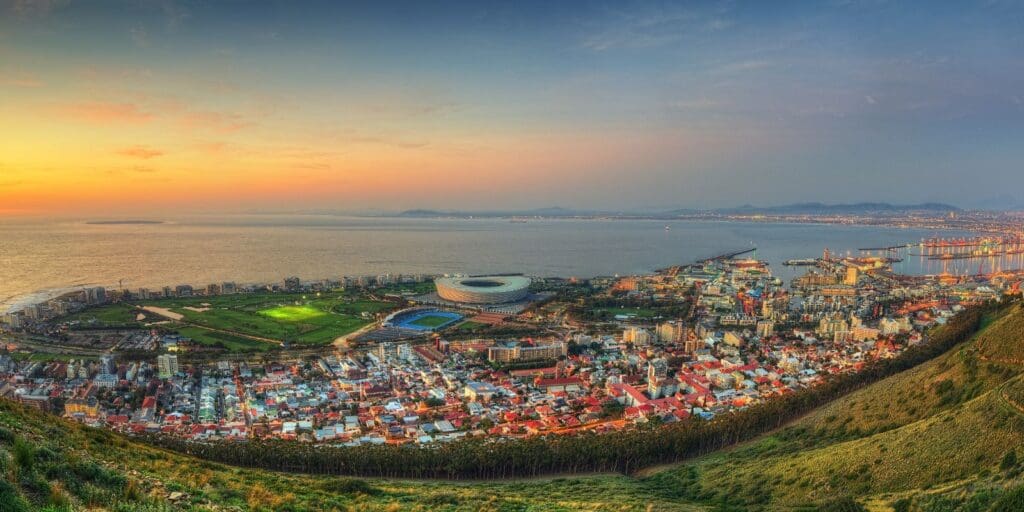In the wake of Foreign Secretary James Cleverly’s recent visit to Beijing, debate has surged about the direction of the United Kingdom’s post-Brexit trade relationships. While the economic might of China is alluring, it brings with it a complex array of challenges, including ethical concerns related to human rights and geopolitical stability. This potential overreliance on a single major power like China—or for that matter, Saudi Arabia—can prove detrimental. Economic dependency can curtail diplomatic manoeuvrability and create lopsided power dynamics, often at odds with the UK’s foreign policy principles and ethical imperatives.
In such a landscape, Africa presents an often overlooked but compelling case for enhanced trade relations. Let’s consider the scale of the opportunity. Africa accounts for 17% of the world’s population but lags significantly in its share of global trade, at just 2.3%. This glaring imbalance is not just a measure of Africa’s economic marginalization; it is an indicator of unexplored potential. Investing in African countries can not only correct this imbalance but also serve as a cornerstone for the UK’s diversification strategy in its international trade portfolio.
Take the example of Angola, a nation where the UK has not had a colonial past, thereby sidestepping the fraught complexities that come with historical baggage. Angola offers a degree of political stability that is sometimes absent in other parts of the continent. BP and other British companies have had a long-standing presence in Angola, particularly in the oil sector. Such a relationship represents an alternative to the UK’s often contentious reliance on Saudi Arabian oil, and it showcases how Africa can provide stable and mutually beneficial trade relations. What’s more, Angola is taking climate change seriously and is looking towards the power of renewable energy, with the country set to supply Germany with green hydrogen next year, making Angola the first African nation to produce and export the substance.
Yet, the conversation must move beyond mere economic exploitation. The engagement should be moulded in a developmental context. Countries like Angola need to diversify their economies, and partnerships with nations like the UK could prove catalytic in such transitions. The aim should be the creation of a balanced economic relationship that goes beyond the extraction of raw materials, aiding Africa in adding value to its resources. This diversification isn’t just good for Africa; it could provide the UK with a broader range of goods and services over time, thus enriching its own market and creating more resilient supply chains.
Furthermore, the rise of stable African nations such as Botswana, Rwanda, and Ghana, with their growing middle classes, presents the UK with an opportunity for deeper and more diversified trade relationships. Many of these countries share common legal and linguistic frameworks with the UK, thereby lowering the barriers to entry for British businesses.
In the realm of policy, the UK has an opportunity to craft a new narrative and structure. Freed from the confines of European Union frameworks, post-Brexit Britain can align its trade policies more closely with its long-term economic, ethical, and diplomatic goals. There’s room to be agile, to be innovative, and most importantly, to align trade strategy with a broader vision for global Britain—one that respects sovereignty, champions ethical considerations, and promotes mutual growth.
There’s also an opportunity for the UK to take a principled stand on development issues at international forums like the World Trade Organisation. With its independent seat, the UK can advocate for policies that not only promote fair trade but also contribute to global development, thereby amplifying its role as a responsible global actor.
Today, UK finds itself at an important crossroads. The choices it makes now in shaping its trade relationships will have far-reaching implications for its role on the global stage. Africa offers not just an untapped market for goods and services but an opportunity for the UK to redefine its international trade policy in a way that is both economically rewarding and ethically sound. As the UK carves out its identity in a post-Brexit world, it would do well to look to Africa—not merely as a land of untapped opportunities but as a partner in crafting a more balanced and equitable global trade ecosystem.

